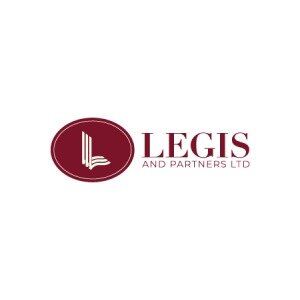Best Energy Regulatory Law Lawyers in Port Louis
Share your needs with us, get contacted by law firms.
Free. Takes 2 min.
List of the best lawyers in Port Louis, Mauritius
About Energy Regulatory Law in Port Louis, Mauritius
Energy Regulatory Law in Port Louis, Mauritius, refers to the legal framework that governs the generation, distribution, supply, and consumption of energy. This area of law primarily focuses on electricity, renewable energy sources, and petroleum products. It encompasses the licensing of energy providers, regulation of tariffs and pricing, environmental standards, and consumer protection. In Port Louis, the capital and a major commercial hub of Mauritius, energy regulation is crucial to ensure reliable power supply, foster sustainable practices, and promote fair competition among providers.
Why You May Need a Lawyer
Navigating the complex landscape of Energy Regulatory Law often requires professional legal assistance. Some common situations where you may need a lawyer include:
- Applying for or renewing energy licenses for electricity generation, transmission, or distribution
- Negotiating Power Purchase Agreements or supply contracts
- Advising on compliance with environmental or safety regulations for energy projects
- Challenging regulatory decisions or sanctions imposed by energy authorities
- Handling disputes between energy providers and consumers
- Representing investors in renewable energy projects such as solar, wind, or biomass ventures
- Guiding foreign companies through the regulatory and investment approval process
- Ensuring compliance for businesses expanding or modernizing their energy infrastructure
Local Laws Overview
Mauritius has developed a structured and transparent legal framework to regulate its energy sector. The principal legislation includes the Electricity Act 1939 (as amended), the Energy Efficiency Act 2011, and various regulations issued by the Utility Regulatory Authority (URA) and the Central Electricity Board (CEB). The URA acts as the sector's regulator, overseeing licensing, tariff structures, and consumer grievances. Environmental standards are guided by the Environment Protection Act. The government encourages renewable energy initiatives in line with its commitment to sustainable development and energy independence. All energy providers must adhere to safety, reliability, and quality standards enforced by local authorities.
Frequently Asked Questions
What government authority regulates electricity in Port Louis?
The Utility Regulatory Authority (URA) is the main regulatory body overseeing electricity and other utility services in Mauritius, including Port Louis.
Do I need a license to generate or distribute electricity?
Yes, any entity generating, transmitting, or distributing electricity-whether for public supply or private use-must obtain a license from the URA.
Are there incentives for investing in renewable energy?
The Mauritian government offers various incentives, such as tax rebates and feed-in tariffs, to encourage investments in solar, wind, and other renewable energy projects.
How are energy prices and tariffs determined?
Tariffs are regulated by the URA, which considers factors such as production costs, investment needs, and affordability for consumers before approving pricing structures.
What should I do if I have a dispute with my energy provider?
Start by contacting your provider for resolution. If unresolved, you can file a complaint with the URA, which has dedicated mechanisms to address consumer grievances.
Can foreign companies invest in Mauritius's energy sector?
Yes, foreign investment is permitted. However, investors must comply with local licensing, environmental regulations, and any sector-specific restrictions.
Is there a national policy on renewable energy?
Yes, Mauritius follows a national energy strategy that targets increasing the share of renewable energy in the national mix, promoting energy efficiency, and reducing reliance on fossil fuels.
What are the environmental compliance requirements for energy projects?
All energy projects must follow the Environment Protection Act, which includes the need for environmental impact assessments and adherence to pollution control standards.
How is energy efficiency regulated?
The Energy Efficiency Act mandates standards for appliances, promotes efficient use of energy, and requires certain businesses to implement energy management practices.
How can I apply for an energy license or permit?
Applications are submitted to the URA. The process involves providing technical, financial, and operational details, along with compliance with safety and environmental criteria.
Additional Resources
If you are seeking information or assistance regarding Energy Regulatory Law in Port Louis, consider the following resources:
- Utility Regulatory Authority (URA) - Regulates licensing, tariffs, and consumer disputes.
- Central Electricity Board (CEB) - Main public utility managing electricity supply and infrastructure.
- Ministry of Energy and Public Utilities - Formulates and implements national energy policy.
- Ministry of Environment, Solid Waste Management and Climate Change - Oversees environmental compliance for energy projects.
- The Mauritius Renewable Energy Agency (MARENA) - Promotes and supports renewable energy ventures.
- Chamber of Commerce and Industry - Offers guidance and resources for investors in the energy sector.
Next Steps
If you need legal assistance in Energy Regulatory Law, start by identifying the specific nature of your issue-whether it concerns licensing, compliance, investment, or dispute resolution. Gather any relevant documents or correspondence. Consider consulting a lawyer with experience in energy or regulatory law in Port Louis to ensure you understand your rights and obligations. Many law firms offer initial consultations to assess your case. When contacting a lawyer, provide clear information and be prepared to discuss your goals and concerns. Staying informed about local regulations and maintaining organized records will help facilitate the legal process and achieve a favorable outcome.
Lawzana helps you find the best lawyers and law firms in Port Louis through a curated and pre-screened list of qualified legal professionals. Our platform offers rankings and detailed profiles of attorneys and law firms, allowing you to compare based on practice areas, including Energy Regulatory Law, experience, and client feedback.
Each profile includes a description of the firm's areas of practice, client reviews, team members and partners, year of establishment, spoken languages, office locations, contact information, social media presence, and any published articles or resources. Most firms on our platform speak English and are experienced in both local and international legal matters.
Get a quote from top-rated law firms in Port Louis, Mauritius — quickly, securely, and without unnecessary hassle.
Disclaimer:
The information provided on this page is for general informational purposes only and does not constitute legal advice. While we strive to ensure the accuracy and relevance of the content, legal information may change over time, and interpretations of the law can vary. You should always consult with a qualified legal professional for advice specific to your situation.
We disclaim all liability for actions taken or not taken based on the content of this page. If you believe any information is incorrect or outdated, please contact us, and we will review and update it where appropriate.













